
John Nagenda: It is Time to Exit the Elitist Club Within NRM
By Charles Birungi
After the fall of Kampala and the seizure of power by the National Resistance Army (NRA) in January 1986, factions began to emerge within the triumphant movement that had ousted the dictatorships of Milton Obote and Tito Okello Lutwa.
These factions consisted of those who had resisted and those who had collaborated with the dictatorships; within the resistance faction there were those who had been in the bush and those who were in exile. Within the bush faction there were the civilian and armed wing; within the armed wing there were field commanders and the intellectuals etc. People like Eriya Kategaya, Ruhakana Rugunda, the late Tom Mboijana, the late Charles Katungi, Elly Rwakakoko (one time Commissioner General of URA), Amama Mbabazi, Mathew Rukikaire (former Minister of Finance), James Tumusime (a one time Editor In Chief at New Vision), John Nagenda and Dr.Kagimba (former personal physician to President Yoweri Museveni) were all part of the resistance faction but based in exile. They formed part of the NRA/NRM external committee.
The late Eriya Kategaya was the chairman of this external committee and controlled its activities (which mainly comprised of looking for arms that could then be smuggled back to the bush). Kategaya, (unlike the rest on the external committee) also spent long periods of time in the bush working with the civilian wing of the rebel movement. The members of the external committee were all educated, professional, middle class types who were largely Western leaning ideologically. They had travelled to diverse capitals in Europe and America when most Ugandans at that time could hardly boast of leaving their districts. Their tastes were bourgeois; many of them enjoyed a glass of wine with their lunch, then brandy and cigars after dinner.
Weekends were for a round of golf at the club and Sundays for a barbeque at one of their posh homes in Nairobi or London. So it was no surprise that these posh gentlemen (who were both age mates and intellectual equals of Museveni) were viewed with some hostility by the peasants turned soldiers in the NRA.
Sometime in 1986, the late Jet Mwebaze (a famous guerrilla fighter of the NRA) confronted one of these gentlemen at a party somewhere and gave him a sound beating. Although, Jet was educated himself (having attended one year at Makerere University before absconding to join the bush war in 1982) he shared the pervasive sentiment amongst the fighters that these gentlemen were unreliable sell outs who had done very little to help the war effort.
After the fall of Kampala, this bourgeois faction re-located from exile to liberated Kampala and soon found a watering hole at Kampala Club. This became a sort of headquarters for them; here they would discuss politics, identify cadres to work in different government departments, strategize, plan and of course drink. It soon became commonplace to find nervous civil servants or other job seekers anxiously waiting to waylay one of these potentates in the corridors of Kampala Club and ask for a job, or some other favor. This bourgeois faction of returned exiles quickly became known as the true powers behind Museveni’s throne. It is to this group of elites that Mr. John Nagenda (a man I have tremendous respect for) has always belonged. The mistake this group always made was to think that because Museveni respected them and listened to a lot of their advice that he was therefore cut from the same cloth as them. That his ideological positions would inevitably mirror their bourgeois, elitist world view; of course, they could not be more wrong.
Yoweri Museveni has always genuflected (or bowed) before the will of the masses. The interests of the masses have always been the supreme consideration for Museveni since his early days of student activism in Nkore and Dar es Salaam. It is this determination to see the interests of the people of Uganda realized that gave him the courage and impetus to take on a government and established army in 1981 with a pitiful force of 27 armed men. So it was a bit of an illusion for this bourgeois faction to believe that they could keep Museveni hostage to their narrow interests as the post 1986 politics evolved.
At each great political crossroad this group would make the mistake of thinking their bourgeois proclivities would draw Museveni in their direction, but alas that would not be so. In 2005, when there was a clamor from the grassroots to amend the constitution to allow Museveni to stand for a third term some amongst this group opposed it. Kategaya fell out with the system he had helped install for a period of time before being rehabilitated and restored to government. In 2016, when others in this same group (this time led by the duplicitous Amama Mbabazi) agitated by various underhand means for Museveni not to stand again and in effect to cede power to Mbabazi they found that Museveni and the will of the majority of Ugandans were not to be denied.
Now we are at another crossroad, there is disquiet amongst the population about an article in the constitution that prevents an otherwise still vigorous Museveni from standing again in 2021 on account of exceeding a certain age. I would like to encourage Mzee Nagenda to finally free himself from the strait jacket of his bourgeois tendencies and to side with the people of Uganda. All political power in this republic derives from the masses of the people. Any attempt at subverting them or attempting to deny their primacy will meet with total failure. Mr.Nagenda should exit the elitist club of the bourgeois faction within NRM and join the people.
One more thing Mr.Nagenda, your views on why Maj.Gen. Muhoozi Kainerugaba would not make a good successor for President Museveni are a bit misplaced. When asked what he thinks about the Senior Presidential Advisor for Special Operations, becoming a future president, Mzee Nagenda responded that although he knows the General (and likes him), thinks he is a good soldier and polite gentleman he thought it was not a realistic proposition ‘Because he hasn’t even stood for chairman of LC1, he has been doing other things.’ Nagenda hastened to add that he did not mind if the people of Uganda elected him (Muhoozi).
I on the contrary believe that Gen. Kainerugaba would make a good president precisely because he has great military experience. Isn’t the responsibility of commanding the Special Forces (a formation of several thousand troops) even more demanding and auspicious than your run of the mill Member of Parliament? Ugandans have become accustomed to Members of Parliament behaving in a shambolic manner and a Parliament that is more akin to a madhouse than the august house it is supposed to be. Are some of these embarrassing characters more eligible for the Presidency than Generals in the military? How many examples in history do we have of good Generals who became great Presidents? So this logic does not stand up to scrutiny.
During Maj.Gen. Kainerugaba’s tenure as the commander of the elite Special Forces Command (SFC), it grew tremendously in strength, competence and lethality. It is now a strategic and indispensable element available to the military leadership. The SFC, alongside regular UPDF formations, is regularly playing an irreplaceable role in our military’s operational theatres ranging from Somalia, South Sudan, and within Uganda.
If an LC 1 chairperson is capable of making a ‘proper’ President (something inferred from Mzee Nagenda’s statements), how much more a military commander of the pedigree and experience of Maj.Gen. Kainerugaba? One who commanded the elite SFC for 8 years and was the engine behind its growth and development.
The author is a journalist with Kampala Post
Links
- 824 views

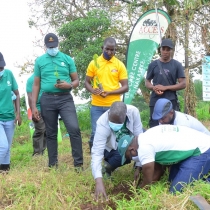





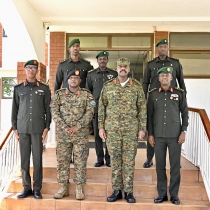
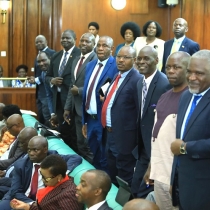





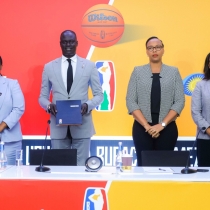



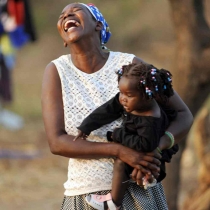







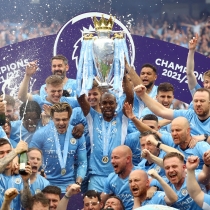



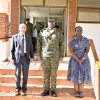
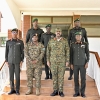
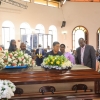

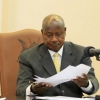








Join the conversation